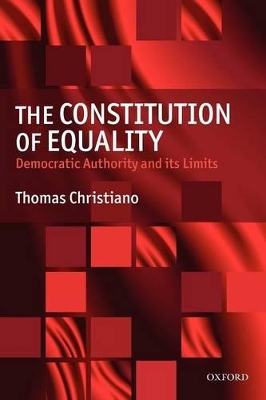What is the ethical basis of democracy? And what reasons do we have to go along with democratic decisions even when we disagree with them? And when do we have reason to say that we may justly ignore democratic decisions? These questions must be answered if we are to have answers to some of the most important questions facing our global community, which include whether there is a human right to democracy and whether we must attempt to spread democracy throughout the
globe.
This book provides a philosophical account of the moral foundations of democracy and of liberalism. It shows how democracy and basic liberal rights are grounded in the principle of public equality, which tells us that in the establishment of law and policy we must treat persons as equals in ways they can see are treating them as equals. The principle of public equality is shown to be the fundamental principle of social justice. This account enables us to understand the nature and roles of
adversarial politics and public deliberation in political life. It gives an account of the grounds of the authority of democracy. It also shows when the authority of democracy runs out. The author shows how the violations of democratic and liberal rights are beyond the legitimate authority of democracy,
how the creation of persistent minorities in a democratic society, and the failure to ensure a basic minimum for all persons weaken the legitimate authority of democracy.
- ISBN10 0199549036
- ISBN13 9780199549030
- Publish Date 10 June 2010 (first published 1 January 2008)
- Publish Status Active
- Publish Country GB
- Imprint Oxford University Press
- Format Paperback
- Pages 320
- Language English
